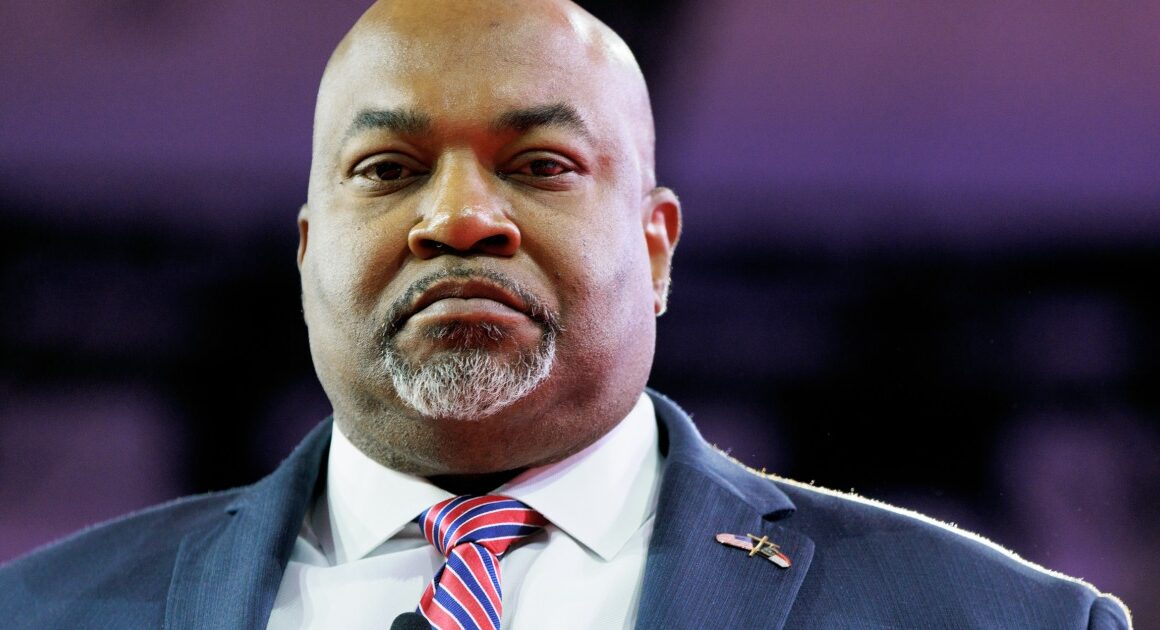
The Uncommitted Movement, the group that helped organize the casting of hundreds of thousands of uncommitted ballots in the Democratic presidential primaries to pressure the party to change its position on supporting Israel, announced Thursday that it will not be endorsing Kamala Harris’ presidential campaign. In the same announcement, however, the group also called for the movement to vote against former President Donald Trump and to avoid third parties.
In other words, Uncommitted effectively criticized Harris as fundamentally problematic on Israel policy while simultaneously encouraging people to vote for her.
The announcement marks a concession that the group is weak — but also that it wants to stay in the game in the long run.
The seemingly contradictory recommendations are bound to anger plenty of progressives upset by the Biden administration’s policies on Israel. But it adds up to a largely coherent strategic position, based on an assessment of the limited power of the pro-Palestinian movement at this juncture and the correct appraisal that Trump would make the situation in Gaza even worse. I’d say the announcement marks a concession that the group is weak — but also that it wants to stay in the game in the long run in the hope to one day shape the Democratic Party’s policies on the issue.
In its announcement of its non-endorsement, the Uncommitted Movement cited its dissatisfaction over Harris’ declining its request to meet with Palestinian Americans in Michigan who have lost loved ones in the Gaza Strip and discuss their demands for an arms embargo on Israel and how to pursue a cease-fire deal. This came after the Democrats refused to invite any Palestinian Americans to speak at the main stage at the Democratic National Convention about the war in Gaza, despite the presence of dozens of Democratic delegates affiliated with the Uncommitted Movement and their vigorous lobbying for a speaker on the issue. (By contrast, the DNC gave a speaking slot to the parents of an Israeli American hostage, who was tragically killed after the convention.) Harris did briefly meet with two members of the Uncommitted Movement in early August but reportedly declined to commit to a longer meeting about arms restrictions on Israel. Alongside all of this, Harris has deployed rhetoric about the Israeli-Palestinian conflict that signals a continuation of the policy status quo and sternly reprimanded pro-Palestinian protesters who disrupted one of her events.
“Vice President Harris’s unwillingness to shift on unconditional weapons policy or to even make a clear campaign statement in support of upholding existing U.S. and international human rights law has made it impossible for us to endorse her,” the group said in a new statement.
At the same time, the statement argued, Trump would be worse for Palestinians in the Gaza Strip because he would “accelerate the killing in Gaza while intensifying the suppression of anti-war organizing.” For this reason, the group states, Uncommitted supporters should vote against Republicans “up and down the ballot” and avoid third-party candidates who could “inadvertently boost” Trump’s chances.
The Uncommitted Movement’s attempt to thread a needle here is awkward. Its statement is, all in the same breath, a complaint about Democrats and also a de facto soft endorsement of them. Some activists will object to the Uncommitted Movement voluntarily giving up its leverage over the Democratic Party, out of the belief that holding out on an endorsement announcement might’ve resulted in some concessions from Harris with another month and a half to go until Election Day. Still others — some of them likely out of the belief that Harris probably won’t signal any policy changes on a hot button issue unless she wins office — will say the Uncommitted Movement’s mealy-mouthed quasi-endorsement is riskier than articulating a clear position that Trump is the biggest imminent threat to Palestinian life.
But the Uncommitted Movement’s overall posture should be familiar to anyone on the left who thinks about the hard reality of voting in America: Even on issues on which Democrats are not good, or are even downright terrible, Republicans are often worse. That’s certainly true in this case. The Biden administration’s effectively unconditional aid to Israel has been morally indefensible and catastrophic for Palestinian civilian life. But Trump would in all likelihood embolden Israeli Prime Minister Benjamin Netanyahu even more than President Joe Biden, intensify Israel’s brutal domination of the Gaza Strip and the West Bank, and revel in brutal repression of protesters at home.
I do think the Uncommitted Movement could have waited longer to issue a statement — perhaps until some time in October, to test Harris more and capitalize on a potential upswing in protests over the issue. But ultimately I’m sympathetic to its attempt to balance values with strategic efficacy. The non-endorsement allows the group to credibly identify potential positive policy changes in the future, since an endorsement would’ve squandered that claim to specific judgment of politicians’ policy positions. At the same time, the voting guidance correctly counsels the movement to think about minimizing harm for Palestinians, seeking the best possible activist terrain in the medium- to long-term future, and choosing to organize against politicians who could conceivably be influenced. It also marks a recognition that the Democratic Party has made it clear that its strategy is to ignore the pro-Palestinian movement, knowing that the movement has lost significant momentum with Harris’ nomination and data indicating the war in Gaza is not a top tier issue even for most young voters.
In its statement, the Uncommitted Movement argues that the antiwar movement must try make inroads into the Democratic Party and develop coalitions that contest the American Israel Public Affairs Committee’s significant influence on the party on Israel policy. That’s an important long-term goal. For the time being, the best hope the antiwar movement has is to keep up the pressure on the party through a fierce protest movement that demands that Democrats put and end to their abominable disregard for life in the Gaza Strip.
![]()






